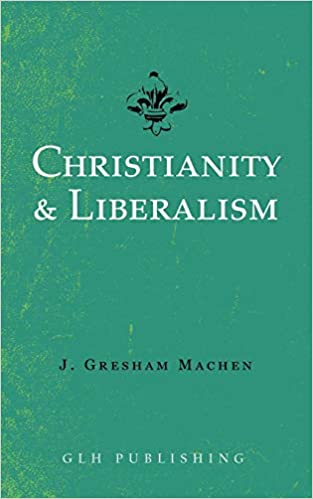A Brief Book Summary from Books At A Glance
By Steve West
About the Author
J. Gresham Machen was founder and Professor of New Testament at Westminster Theological Seminary.
Introduction
This book is a robust defense of Christian orthodoxy and a strong critique of theological liberalism. Machen argues that the church needs to confront liberalism as a system of religious thought which is non-Christian. He compares and contrasts biblical orthodoxy with liberalism’s interpretation of key doctrines to show how antithetical the two systems are.
Table of Contents
Chapter 1 Introduction
Chapter 2 Doctrine
Chapter 3 God and Man
Chapter 4 The Bible
Chapter 5 Christ
Chapter 6 Salvation
Chapter 7 The Church
Summary
Chapter 1: Introduction
This work attempts to present its subject matter and the issues involved in the clearest and sharpest way possible. In life there are some things that are worth fighting for, and this is also true in religion. Historic Christianity is now under attack by “liberal” Christianity (which is a misnomer, since its liberalism is really very narrow). Liberalism is grounded in naturalism. The current understanding of science puts it in a position of authority over theology and the Scriptures. Liberalism rejects miracles as unscientific, and then attempts to reinterpret traditional doctrinal beliefs about Jesus in metaphorical categories. Liberal Christianity isn’t actually Christianity at all (neither is it scientific).
If every church subscribed to liberalism, Christianity would no longer exist. Pietists will want to believe the Bible without rational defense, and many in the world will simply reject the Bible out of hand. Today there is a wide decline in serious thought, and the negative effects this has on all of life is catastrophic. Public education is lowering standards and indoctrinating minds through materialistic paternalism. A public school system should be a great blessing to a nation, but ours is failing. The mindset today is to gravitate to whatever is new and to reject whatever is old, but this is disastrous for the Christian religion. We must set true Christianity in opposition to liberalism.
Chapter 2: Doctrine
Modern liberalism is not merely academic: It is preached in the pulpit and believed in the pew. Doctrinal terms are redefined, and creeds are considered fluid and mutable. An emphasis is placed on life and practice rather than doctrine. From its inception, however, Christianity was a way of life that was founded on its doctrinal message. Paul was willing to tolerate personal enemies, but not false doctrine. He clearly opposed the Judaizers on the basis of theological differences, and his arguments show that some theological understandings qualified as false gospels. Attempts have been made to separate Paul from purer and earlier Christianity, but this cannot be done.
[To continue reading this summary, please see below....]The remainder of this article is premium content. Become a member to continue reading.
Already have an account? Sign In
